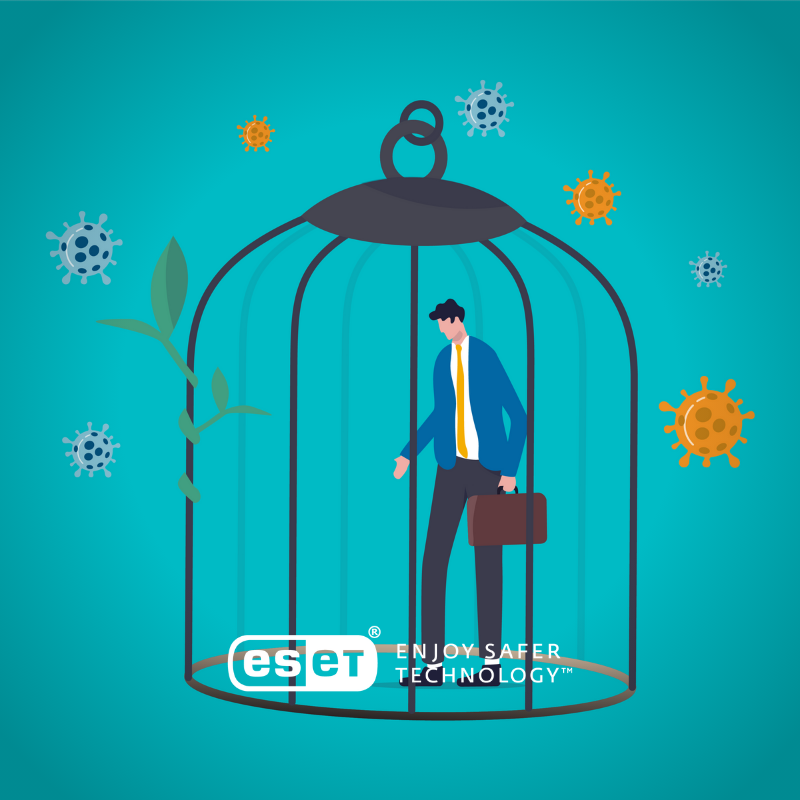Maybe during the quarantine period we couldn't go to the school or work, but that didn't stop us from continuing to learn new things.
In fact, quarantine was the occasion for us to become acquainted with remote work, distance education, remote conferences - and even remote entertainment! According to ESET, the global cybersecurity company, these are the five most important lessons that quarantine has taught us.
1. The right tools make our lives easier
Experience from quarantine life has shown that the right tools are the key to success, whether it be the simple repairs we made ourselves at home, the remote work or the baking of bread. The same goes for cybersecurity - especially when it comes to the safety of our children online. With the increase of content available on the internet, monitoring new cyber threats has become more and more difficult when we also have to control how our children use technology during quarantine. Installing a reliable security software on their devices can significantly help reduce this headache and make parents' lives easier.
2. The time we spend in front of the screen is not necessarily bad
The quarantine has brought out a number of old and new online resources that provide entertainment as well as education. Content from organizations such as Britain's National Theatre, the Royal Academy of London and language learning organization Rosetta Stone have opened up new horizons for children and adults. Screen time now includes a lot more than we used to. But, along with these new possibilities, the risk of phishing also increased (Phishing), a risk that we can mitigate as long as we always look for content on reliable websites and verifiable links.
3. Password managers are the future
It is quite easy to manage strong passwords for different accounts when they are stored on your computer. But moving to remote work meant for many of us also changing devices that certainly didn't have passwords stored on them. A password manager (password manager), then, can solve this problem, precisely because it helps users keep complex and strong passwords available for use on all devices.
4. Personal devices also need protection
Many of us started working from home all of a sudden and without the equipment we were used to. This means that we may have had to work from personal rather than professional devices, which often do not have strong protection. Many of us have worked a lot on personal mobile devices, so the need to protect these devices has become more urgent than ever. Therefore, the installation of security software such as ESET Mobile Security and the implementation of methods that ensure the hygiene and safety of devices in cyberspace (cyber hygiene), contribute significantly to the protection of our personal devices.
5. We are all together in this
... and not only because you can dance the dance that is so popular in TikTok. Πολλά απ' όσα κάναμε τους τελευταίους μήνες, από το αυθόρμητο χειροκρότημα για τους εργαζόμενους στον τομέα της υγείας έως τα ψώνια για τους ηλικιωμένους γείτονές μας, έχουν τις ρίζες τους στη συντροφικότητα και την ομαδικότητα. Όσο όλοι αναλαμβάνουμε ο καθένας το δικό του ρόλο και συμβάλλουμε ο καθένας ξεχωριστά, τότε τα αποτελέσματα μπορεί να είναι εκπληκτικά και η ασφάλεια στον κυβερνοχώρο δε διαφέρει σε αυτό. Τα μικρά πράγματα που κάνουμε βοηθούν όλους να είναι πιο ασφαλείς και επιτρέπουν σε όλους να απολαύσουν περισσότερο το διαδίκτυο.
If we can remember these lessons as the restraint measures relax, then the internet life we return to may ultimately be even better than the one we left behind.





